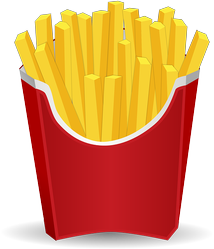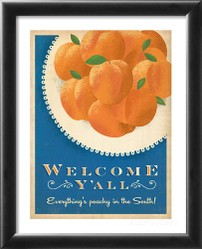Nothing like putting Corp in a name for it to achieve a patina of reliability and ruthless efficiency.
Grain Corp grew out of a Government service that helped farmers get wheat to towns and ports.
Privatisation and globalisation came along and suddenly it was fabulous to sell Government assets to private businesses for the common good of businessmen everywhere.
And Yes, I'm a leftie, but I like it when people look after each other, makes me feel good. I'm not so much into every dog for himself thinking. Just thought I'd declare my bias.
Joe Hockey refused the sale of GrainCorp on 29th November 2013, stating "would not be in our national interest".
There's that national interest.
The buyer was a company from the US called Arthur Daniels Midland, a corporate giant in food.
The National Party and the Greens were the official voices of dissent to the deal. Southpaw socialists the pair of them.
I'm sure issues like the US being found to be bugging everyone on the planet probably had a part to play. Selling off our main wheat distributor to a country that had involved us in their worldwide bugging and who had also put some permanent troops on our soil, well, that might be seen as losing our identity, not just our food. May as well put another star on the US flag and learn the US national anthem.
I told you I was a lefty pinko. But the distribution efficiencies of one big network have costs, for example, being a monopoly and therefore being a matter of one business deal to control a whole State's wheat. Memories of the old Vestey meat business days.
I think the refusal to sell GrainCorp was the right idea. ADM somehow quickly found another quarter of a billion dollars when the deal was looking dodgy, I imagine to try to sweeten and speed the deal up. So they clearly think GrainCorp is a very good deal.
For an idea of how important wheat is to our diet. Try being a Coeliac. Gluten, from wheat and other sources, is in nearly all processed food. Icecreams for example.
Which shows another aspect to this food fight. Everything is changing, diets are changing in Asia as wealth grows. Genetically modified foods are becoming more prevalent. And it seems people's reactions to certain foods are increasing.
But let's keep it simple.
ADM tried to buy GrainCorp and failed. This time.
They lost the battle, but not the war.














 We are always wrongon 12/12/2014
We are always wrongon 12/12/2014
 Conspiracies are Realon 03/24/2014
Conspiracies are Realon 03/24/2014
 Workout for the Doleon 02/26/2014
Workout for the Doleon 02/26/2014
 Fiery New Brands for Aussie politicson 02/25/2014
Fiery New Brands for Aussie politicson 02/25/2014



Comments
I'll post some additional thoughts here in case I rework this idea. Food is a battleground of nations. Countries like North Korea, where the only fat guy is the Supreme Leader, can use starvation to keep the threat of revolution at a minimum, hard to fight when you have to eat grass to stay alive. We see another version of it in Jamie Oliver's School Dinners program, which he said failed because eating well is still seen as an indulgence of the middle class. Which can be seen as a part of England's caste system, but is also strikingly similar to North Korea keeping poor people unhealthy so that they don't have the energy to create change. Meanwhile Australia is selling their land to foreign countries and inviting them to set up food export operations. We could even end up with foreign cities in Australia as a result. An example might be a foreign owned cattle station with its own few thousand inhabitants, an airport, slaughterhouse, packing facilities and direct flights to, say China, and back with minimal border control.
Heheh! Food for thought. They might charge $40 here - but - bet they don't get it! Jo
Hey Jo, it's a changing foodscape, the Free Trade Agreement with China puts things in a new light. Chinese companies have bought two huge cattle stations and will be buying dairy farms, as their tastes become more Western. That's not entirely a bad thing, but if they can sell meat and dairy in China for $40 a kilo then that's what they will charge here too. They can also bring in their own labour, which might be a little worrying.
It can be a little nerve wracking thinking about possible futures, especially looking at China's pollution problems. We don't really want to import that sort of business culture.
Food is a weapon of war, the starvation of sieges is the most graphic, but other uses are to keep one group of people at, or below, certain calorie levels per day so that they don't have the energy to fight. Some say Israel does this to Palestinians. Cults are known to keep people hungry as they cultivate their minds.
That's me, fear mongering again, but think of it as food for thought.
Makes me nervous! Jo
https://au.news.yahoo.com/sunday-nigh...
Indicators for food being a war trigger have been around for a while, I guess one could argue that the war has already begun. At least as far as animals are concerned with over fishing meaning sea birds dying off. There are more tangible indicators though, China changed its one child policy, which will mean more population growth, means the need for more food. And at the same time has been expanding into the South China Sea, even building islands there to base aircraft and naval vessels from. Which has seen the US put 2000 troops in the Northern Territory of Australia. War seems a slow and crushing inevitability unless our technology keeps moving faster than our loins.
Years ago I read that climate change can shift what grows and where, and that some nations could lose their ability to produce their own food. This can actually trigger a war. You seem to be on this track with who can grow what, but with a different corporation taake on it.
Thank you very much! :)
Hi Fargy, I'm pinning this to My Wizzley Writing board.
OK That's the cleverest thing I have seen for a while! He is good on piano. I will seek out more, Jo